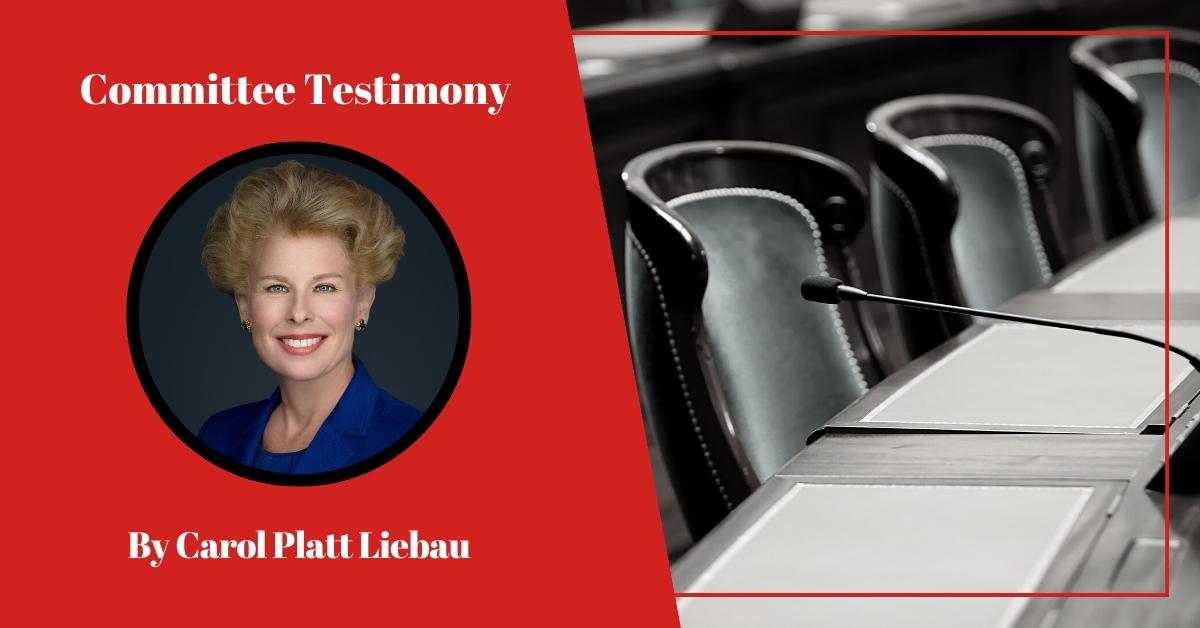On Jan. 30, Carol Platt Liebau — president of Yankee Institute — testified against HB 5917, an Act Implementing the Recommendations of the Vision Zero Council. The bill gives the commissioner of the state Department of Transportation the power to “take any land” by eminent domain to create bike paths. It would also hand municipalities the proverbial green light to install “automatic traffic enforcement safety devices” (i.e., surveillance cameras) to monitor motorists.
Good morning. My name is Carol Platt Liebau. I am President of Yankee Institute, a public policy organization committed to empowering Connecticut’s people to forge a brighter future for themselves and their families. I am testifying in opposition to House Bill 5917, An Act Implementing the Recommendations of the Vision Zero Council. Please feel free to contact me at [email protected] with any questions.
House Bill 5917 unacceptably violates individuals’ property and personal rights.
Among its shortcomings, the bill vests the commissioner of the state Department of Transportation with the ability to “take any land” to create bike paths, and hands municipalities the proverbial green light to install “automatic traffic enforcement safety devices” (i.e., surveillance cameras) to monitor motorists. This is an abuse of eminent domain and a misuse of government authority.
The bill demonstrates no public need to take private property. These bike paths are for the recreational use of a single group: cyclists. And a theoretical, de minimis reduction in carbon emissions can’t justify the real seizure of real people’s real property.
Abusing eminent domain to favor elite groups or political causes is exactly what prompted the public backlash in the Kelo v. New London case. Handing unelected unaccountable bureaucrats the power to seize private property for the exclusive benefit of cyclists is wrong. People must know their individual property rights are protected here in Connecticut.
Beyond the expansion of eminent domain, the legislation also raises concern because it enables the implementation of “automatic traffic enforcement safety devices.” According to research, these devices run counter to the equity agenda embraced by many at the Capitol. ProPublica and others have claimed that such cameras have a racially disparate impact. For instance, in Chicago, which implemented traffic cameras, black and Latino communities reportedly received tickets at “around twice the rate of those in white areas between 2015 and 2019” and were “hit with more than half a billion dollars in penalties over the last 15 years.”
Studies likewise suggest that cameras can increase the number and severity of traffic accidents. The Scientific American investigated Houston’s camera program and concluded that it was “ineffective in improving traffic safety,” adding “electronic monitoring is not the solution.”
Finally, constant monitoring by law enforcement is unbecoming a free people. Connecticut’s residents should not be treated as presumptive lawbreakers, subject to ongoing government surveillance. The people of Connecticut have the right to be secure in their property — and to go about their lawful business without being watched. An Act Implementing the Recommendations of the Vision Zero Council runs counter to the way Americans should expect to live.
Yankee Institute respectfully urges the legislature to Vote No on House Bill 5917.

